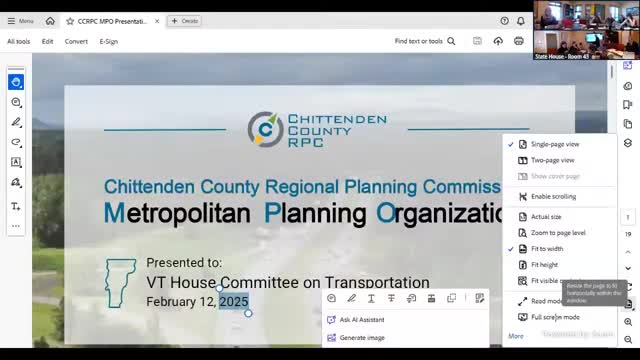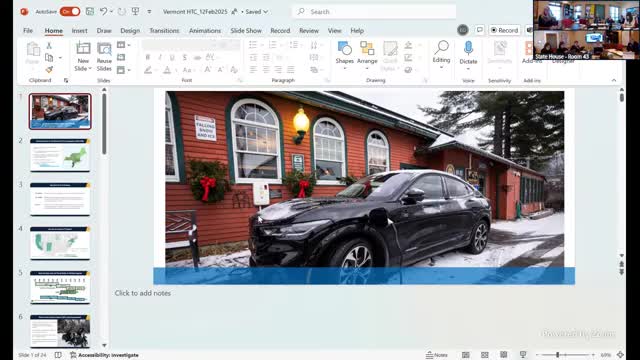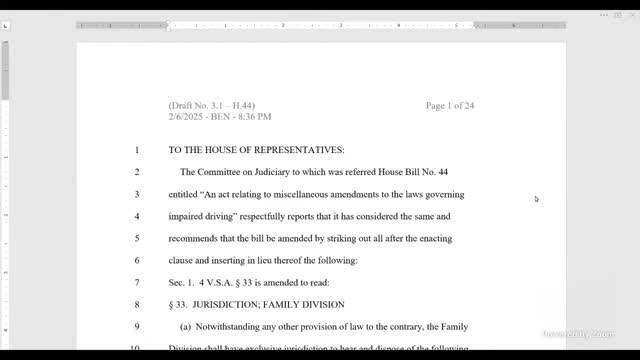Article not found
This article is no longer available. But don't worry—we've gathered other articles that discuss the same topic.

Chittenden County MPO director outlines role, budget and projects for regional transportation planning

Witness explains Advanced Clean Cars 2, California waiver and how Vermont would implement ZEV requirements

